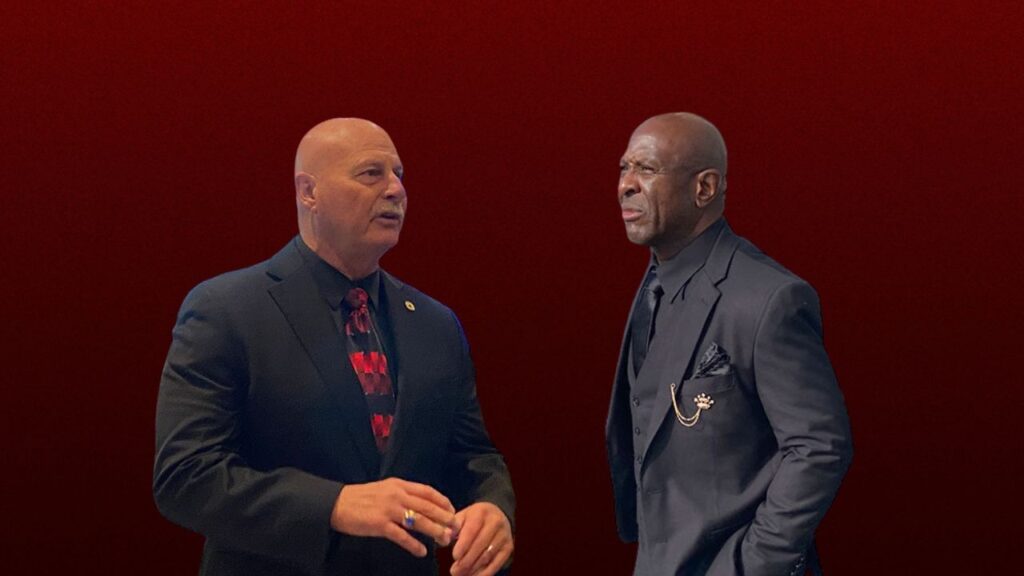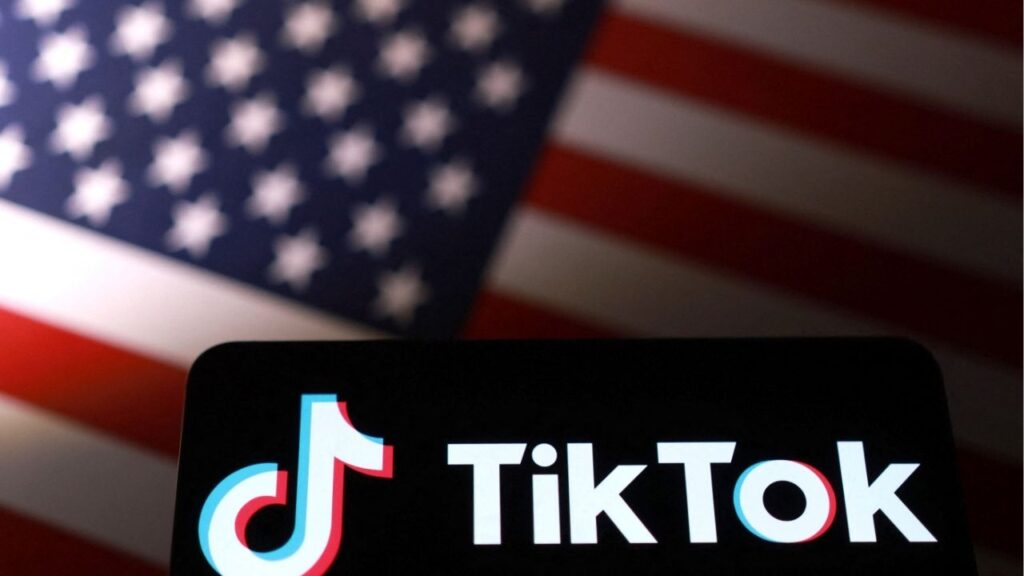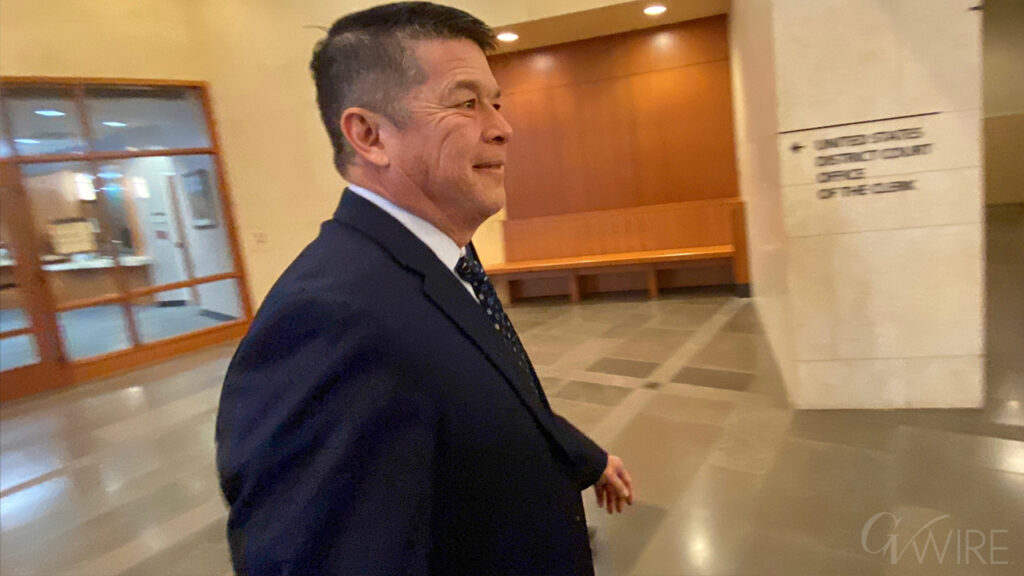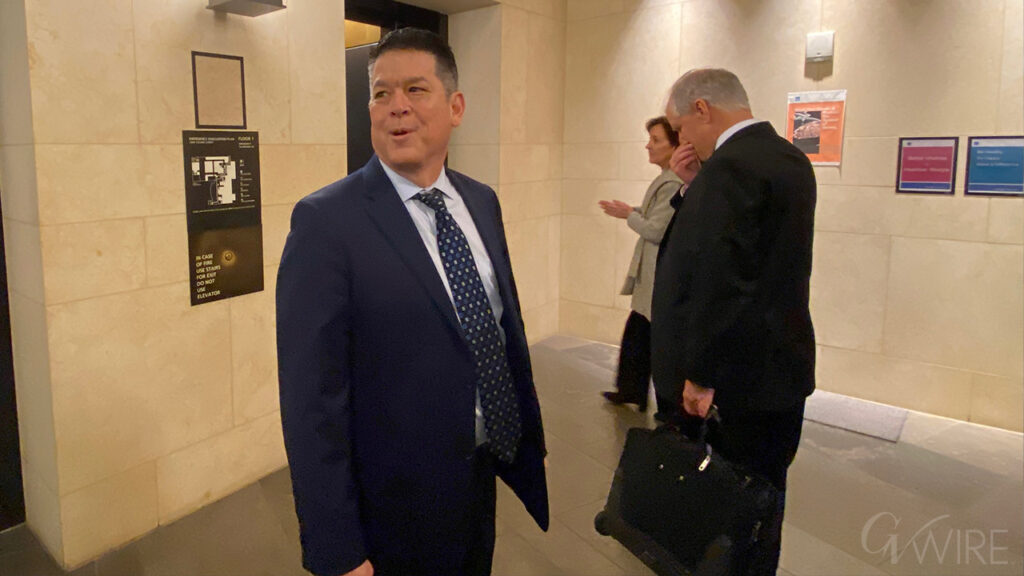Despite heavy campaigning, the upcoming Iranian presidential election faces widespread apathy and skepticism due to economic struggles and political dissatisfaction. (Arash Khamooshi/The New York Times)

- There is little enthusiasm among Iranians for the upcoming presidential election.
- Sanctions, economic mismanagement, and personal freedoms being quashed have led to widespread dissatisfaction.
- Those who experienced the 1979 revolution and the Iran-Iraq war are more likely to vote.
Share
|
Getting your Trinity Audio player ready...
|
TEHRAN, Iran — Central Tehran is ablaze this week with posters and billboards of the six candidates in Friday’s presidential election, and the streets are jammed with buses taking supporters to campaign rallies, yet it is hard to find enthusiasm even for voting, much less for any individual candidate.
Iranians will head to the polls in a special election to choose the successor to former President Ebrahim Raisi, who died in a helicopter crash in May.
Election Comes at a Critical Moment for Iran’s Government
The election comes at a critical moment for Iran’s leadership. The economy has been weakened by years of sanctions, and under Raisi’s ultra-conservative leadership, personal freedoms and expressions of dissent have been increasingly quashed. Yet the government is keen to persuade more Iranians to show up at the polls in large numbers because voter turnout is seen as a measure of its support and legitimacy.

It may be a challenge, after years of voter boycotts and apathy, and judging from a small sample of interviews in recent days. Conversations with more than a dozen government workers, students, businesspeople and other ordinary men and women revealed a degree of weariness, even skepticism, despite the risks of speaking freely in Iran.
Even those who say they will vote — although they rarely want to say for whom — say they have little faith that their lives will change in ways that matter to them.
“We have been going backward and we are crying inside; I cannot afford to buy the machines I need for my work,” said Ibrahim, 53, an industrial engineer who owns a cement business in the northern city of Tabriz and who, like most Iranians interviewed in the days just before the election, was reluctant to give his full name for fear of retribution from the authorities.
Related Story: Iran Presidential Candidates Withdraw Amid Voter Apathy Ahead of Friday’s ...
Iranian Economy Struggling
The Iranian economy has struggled in recent years, partly a result of the sanctions the United States imposed after the collapse of the 2015 nuclear deal, but also because of economic mismanagement by the country’s clerical and military rulers. Iranians have also chafed under restrictions on their personal lives, particularly the requirement that women wear the hijab, which led to mass protests in 2022.
They have heard presidential candidates’ promises of change from time to time, and they are hearing them again in full throat in this election. But in the past they have, at best, gained some relaxations of laws on personal freedoms under moderate presidents like Hassan Rouhani, or the reformist Mohammad Khatami, only to face a crackdown under their conservative successors, like Raisi.
And they know the final say in all matters in Iran lies with the supreme leader, Ayatollah Ali Khamenei, and that they have no sway whatsoever over his decisions.

Protests Have Taken Many Forms Since 2019/2020
Since uprisings in both 2009 and 2010 over what was widely thought to be a rigged election, and in those that were violently suppressed with executions and imprisonment in 2022 over the hijab, protests have taken different forms. One of those is to boycott the polls altogether to show that the people reject any candidate who is allowed to run by the government, which vets all hopefuls.
That disaffection with Iran’s current leaders comes through in many conversations with ordinary Iranians, though older ones like Ibrahim draw some satisfaction from their experiences in the early years after Iran’s 1979 revolution.
Related Story: Escalating Israel-Hezbollah Clashes Threaten to Spark Regional War and Force US ...
Ibrahim had stopped with his family to visit the shrine built south of Tehran to honor Ayatollah Ruhollah Khomeini, the ideological architect of the revolution, the overriding event of the past 50 years here and one that still shapes Iran’s domestic and foreign affairs.
The enormous golden mausoleum, with its mosaic-covered domes and soaring golden minarets visible from miles away, is a striking contrast to the diminished circumstances that so many Iranians say they feel today, and although I visited on a religious holiday, the vast complex and its many parking lots were almost empty.
“I’ve seen two generations — I was 7 years old when the revolution came — the generation of the revolution and the next generation,” he said.
“After the revolution we saw more sacrifice, and everybody thought that they were brothers and sisters, and there was this philosophy of martyrdom, of everybody being ready to give his life for the country,” he said, referring to the Iran-Iraq conflict that ended in 1988 at the cost of hundreds of thousands of Iranian lives, though the true number is unknown.
But now, if there is another war, “I don’t think that they will go and fight for the country.”

Those Who Want to Vote Were Revolutionists
Those who feel most committed to voting are those who took part in the 1979 revolution, or at least have a memory of it from childhood, and often worked for a long time in the government. Often, they also fought in the Iran-Iraq war, and feel deeply connected to the country’s revolutionary identity.
Related Story: Iran’s Nuclear Expansion Raises Global Concerns, Condemnation
Hossein Nasim, 56, who runs a small carpet shop in the Tajrish Bazaar, says he is enthusiastic about voting on Friday. He spent seven years as a prisoner in Iraq during the war — he became a soldier at 17 — and has one demand of the next president: Keep Iran away from war.
“Keep us away from any type of invasion,” he said, adding that the leaders of Iran’s Revolutionary Guard are “peace-loving people” who are trying to avert conflict. He said Maj. Gen. Qassem Soleimani, who led Iran’s powerful Quds Force, which is responsible for Iran’s external defense, and whom the United States killed in a drone strike in Iraq in 2020, was the kind of leader “who could organize people very well.”
Soleimani, whom the United States described as a terrorist, was responsible for setting up the Iran-backed armed groups across the Middle East that have helped to achieve Nasim’s goal of keeping war away from Iran. These groups — Hezbollah in Lebanon, the Houthis in Yemen, Hamas in the Gaza Strip and various militias in Syria and Iraq — give Iran plausible deniability while carrying out attacks on Iran’s enemies, including Israel and the United States.
Masumeh, 27, a conservatively dressed accountant in a black chador who had come with her 6-year-old son to pray at the shrine, appeared to be searching for that same sense of mission that both Nasim and Ibrahim, the industrial engineer from Tabriz, drew from the early days of the revolution.
Speaking of Khomeini, she said, “I am too young to remember the revolution, but I know that many young people followed him and he strengthened Islam in Iran.”
“This revolution was like a miracle for Iran. It made Iran exceptional, and we should continue in his path,” she said.
–
This article originally appeared in The New York Times.
By Alissa J. Rubin/Arash Khamooshi
c.2024 The New York Times Company
Distributed by The New York Times Licensing Group



















